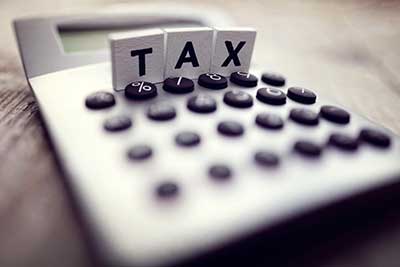Date: 01/11/2022
Relevance: GS-3: Indian Economy and issues relating to planning, mobilization, of resources, growth, development and employment.
Key Phrases: Tax evasion, Income-Tax department, compounding fee, Section 321 of CrPC, Benami Act, Abetment of tax evasion, Article 265, Gross collection of Direct Taxes.
Why in News?
- The income-tax officer is next only to the police officer in the matter of evoking fear in the minds of the common citizenry.
- Penalties levied for tax evasion are subject to appeals and revisions. But prosecution launched by the Income-Tax department before a criminal court can lead to imprisonment.
- The Finance Ministry has come up with guidelines for compounding such prosecution offences.
Key Highlights:
- Under this, if the compounding fee is paid, the prosecution case can be withdrawn.
- These guidelines enable a taxpayer to have the option of avoiding prosecution or jail term by paying a fine.
- The discretion available with the tax authority is considerably reduced.
- The guidelines have been revised from time to time for the past 10 years.
- The latest set of guidelines, issued in September 2022, declares
compounding of offences would depend on satisfaction of eligibility
conditions prescribed in the guidelines,
- keeping in view the conduct of the assessee and the nature and magnitude of the offence.
- Prosecution instituted under the Indian Penal Code cannot be compounded unless it involves Section 321 of the Criminal Procedure Code (CrPC), which provides for withdrawal of the prosecution.
Compounding Offences
- Serious offences like concealment, wilful attempt to evade tax or non payment of tax, failure to produce accounts, falsification of accounts can also be compounded on fulfilment of stringent conditions.
- Time limits are prescribed for applying for such compounding.
- The applicant should undertake to withdraw the appeals leading to prosecution.
- Certain offences can never be compounded, such as failure to disclose foreign account and assets, offences under the Benami Act or by a person convicted by a court for any offence.
- Abetment of tax evasion can also result in prosecution.
- Tax investigations can also result in detection of terrorist
activities, where no compounding is allowed.
- Persons applying for plea, bargaining will not be entertained.
- Rejection of the application for compounding should be through a
speaking order.
- Where the tax sought to be evaded exceeds ₹25 lakh, the compounding fee can be 150 per cent of the tax sought to be evaded.
- In other cases the fee is 125 per cent of the tax attempted to be evaded.
- Attempt to evade penalty will attract only 100 per cent of such penalty for compounding.
- In extreme and exceptional cases of genuine financial hardship, the compounding charges maybe suitably reduced with the approval of the finance minister.
Taxation In India:
- Taxes in India are levied by the Central Government and the State Governments by virtue of powers conferred on them by the Constitution of India.
- Some minor taxes are also levied by the local authorities such as the Municipality.
- The authority to levy a tax is derived from the Constitution of India which allocates the power to levy various taxes between the Union Government and the State Governments.
- An important restriction on this power is Article 265 of the Constitution which states that "No tax shall be levied or collected except by the authority of law". Therefore, each tax levied or collected has to be backed by an accompanying law, passed either by the Parliament or the State Legislature.
- Note:-The Gross collection of Direct Taxes (before adjusting for refunds) for the FY 2022-23 stands at Rs. 8,36,225 crore compared to Rs. 6,42,287 crore in the corresponding period of the preceding Financial Year i.e. FY 2021-22, registering a growth of 30% over collections of FY 2021-22.

Do You Know?
- Direct taxes are those that are paid directly to the government by an individual or a legal entity.
- Direct taxes are overseen by the CBDT (Central Board of Direct Taxes).
- Direct taxes are not transferable to another individual or company.
- Individual Income Tax and Corporate Income Tax are examples of direct tax.
- An indirect tax is imposed on one person or group, like manufacturers, then shifted to a different payer, usually the consumer.
- Unlike direct taxes, indirect taxes are levied on goods and
services, not individual payers, and collected by the retailer or
manufacturer.
- Entertainment Tax , Customs Duty and Value-Added Taxes (VATs) are examples of indirect taxes.
Conclusion:
- These guidelines are remarkable, but the department has rarely succeeded in launching prosecution or in securing a conviction.
- The Supreme Court recently, citing Adam Smith, advised the government to keep the tax regime simple, achieving maximisation of compliance.
Sources: The Hindu BL
Mains Question:
Q. The income-tax officer is next only to the police officer in the matter of evoking fear in the minds of the common citizenry. Critically examine the statement. (250 Words).






















